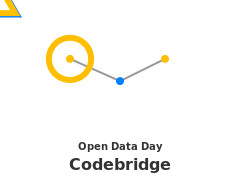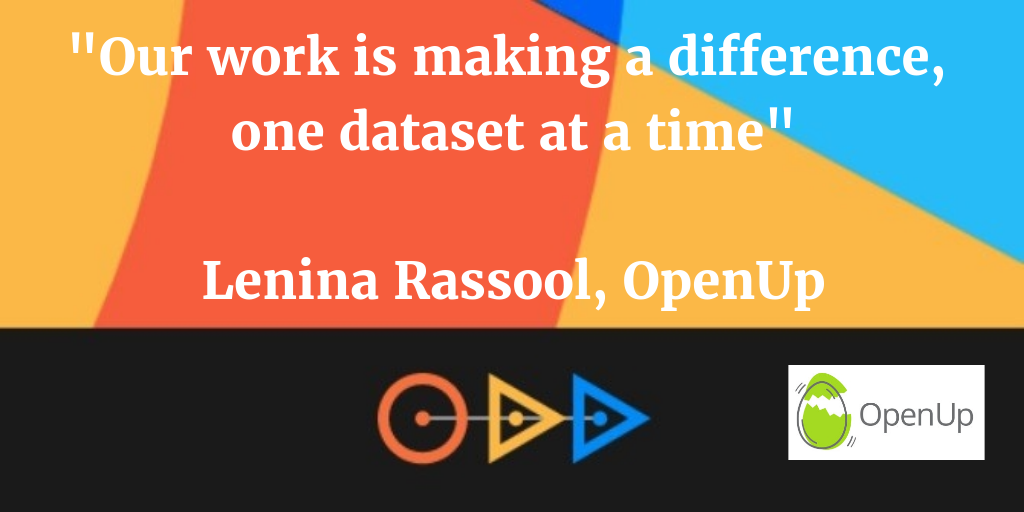This blog is part of the event report series on International Open Data Day 2017. On Saturday 4 March, groups from around the world organised over 300 events to celebrate, promote and spread the use of open data. 44 events received additional support through the Open Knowledge International mini-grants scheme, funded by SPARC, the Open Contracting Program of Hivos, Article 19, Hewlett Foundation and the UK Foreign & Commonwealth Office. This event was supported through the mini-grants scheme under the Human Rights theme.
South Africans dug into local datasets for our #KnowYourHood online challenge for Open Data Day 2017. Here’s what they found.
How well do you know your neighbourhood? In an age where communities are using Facebook and Whatsapp groups to monitor crime and share information, we’re sure you’d be able to tell us what streets to avoid, where the local bakery is and which fish & chips shop not to buy from. But can you tell us how many – if any – child-headed households there are in your area? You’d probably be surprised at the answer. Or how many people actually have access to water, electricity and municipal services in your ward? What about how your municipality is spending your hard-earned taxes, and who to contact if they’re not? This was the focus of Codebridge’s online event for Open Data Day 2017. Instead of the usual.
But can you tell us how many – if any – child-headed households there are in your area? You’d probably be surprised at the answer. Or how many people actually have access to water, electricity and municipal services in your ward? What about how your municipality is spending your hard-earned taxes, and who to contact if they’re not?
This was the focus of Codebridge’s online event for Open Data Day 2017. Instead of the usual data quest with techies sitting at laptops, wrangling data and coming up with tech solutions – not that this isn’t super important and awesome as well – we decided to place the spotlight on the end-users this year: citizens.
The Codebridge #KnowYourHood challenge encouraged South Africans to dig through census and municipal financial data via simple-to-use online tools such as Wazimap and Municipal Money to get to know their own neighbourhoods. The challenge was comprised of 30 carefully selected questions, designed to leave participants with useful knowledge that they could act on later should they need or want to. Things like: who is your ward councillor; who would you contact if people don’t have access to basic sanitation; which political party has the strongest support in the 2014 local election in your ward?
There was also an educational element to it. When Municipal Money was built by Code for South Africa and the Department of Treasury last year, they knew it wasn’t enough to just put municipalities’ financial statements online, as the average person doesn’t understand the jargon and how it works. They added a host of videos, explainers and text boxes with definitions that explain to the user what they are seeing. The challenge questions for this section was constructed to help the user navigate the site and involved watching at least one video and looking up a few definitions.
The day was rounded off by live online support via email, Facebook, Twitter and our Coderidge discussion form – although users managed to find their way around pretty much on their own. They seemed to enjoy it too!
Im really enjoying @codebridge's Know Your Hood challenge for #OpenDataDay2017 a great way to showcase @code4sa's many tools
— Siyabonga Africa (@siyafrica) March 4, 2017
Enjoyed hacking municipal data with my hack buddy @LEBOGOOFENTSWE #KnowYourHood was cool. Thank you @codebridge
— Mabu Manaileng (@thisMabu) March 4, 2017
And as the answers came in, we were very pleased with the feedback. Our final two questions asked participants: “What is the most interesting discovery you have made about your municipality or ward” and “Did you learn anything about your area that you find surprising”.
As expected, people were alarmed at the number of child-headed households in their communities. Two interesting facts about municipalities that emerged were “how little is spent on contractors” and “that the money spent on roads is small compared to planning”.
One participant stated on the financial performance of municipalities that she “didn’t know about most of the terms until today”. Our very favourite comment out of the lot, however, was: “That there is (sic) so much data publicly available.”
It shows not only how far we have come in the Open Data movement, but that our work is making a difference, one dataset at a time.









